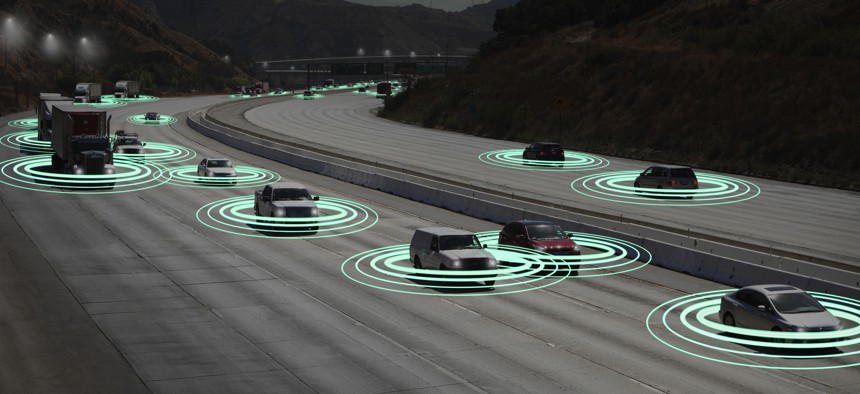DOT awards $94 million for innovative transportation tech

Paul Taylor/Getty Images
The Strengthening Mobility and Revolutionizing Transportation Grants Program made 59 awards for demonstration projects leveraging automation, connected vehicles, sensors and drones as well as smart grid and intelligent traffic signal technologies.
Nearly 60 state and local agencies looking to upgrade their transportation technology can now tap into $94 million from the U.S. Department of Transportation’s Strengthening Mobility and Revolutionizing Transportation Grants Program.
As part of the Bipartisan Infrastructure Law, the SMART program will provide over $500 million over five years for demonstrations of innovative technology that creates safer, more efficient and equitable transportation systems.
The 59 awards are spread across 33 states and nine technology areas, with the winning projects leveraging several solutions, including automation, connected vehicles, sensors and drones as well as smart grid and intelligent traffic signal technologies.
Five state DOTs are working on projects to improve safety in work zones, while others are addressing pedestrian safety. Some awardees plan to improve the reliability, speed and payments for public transit, and several are looking to reduce congestion and monitor emissions through curb management technology.
Sensors will be enlisted to prevent accidents and monitor traffic, aging infrastructure and flooding. Drones will primarily be used for inspections and environmental sensing, but they will also be testing delivery of medical care and equipment to isolated residents. Investments in smart grid management tools and battery banks will help some awardees prepare for increasing numbers of electric vehicles.
For this round of funding, the maximum award was $2 million. In the fall, another $100 million is expected to be released.
The SMART grants program received 392 applications, requesting an average of $1.5 million. That worked out to $6 of applications for every $1 available for grants, DOT officials said.
“We are thrilled to see the interest in SMART during its inaugural year,” said Robert C. Hampshire, DOT’s deputy assistant secretary for research and technology and chief science officer. “This shows the important role this new program can play in helping support state, local, and tribal efforts to advance technology applications.”






